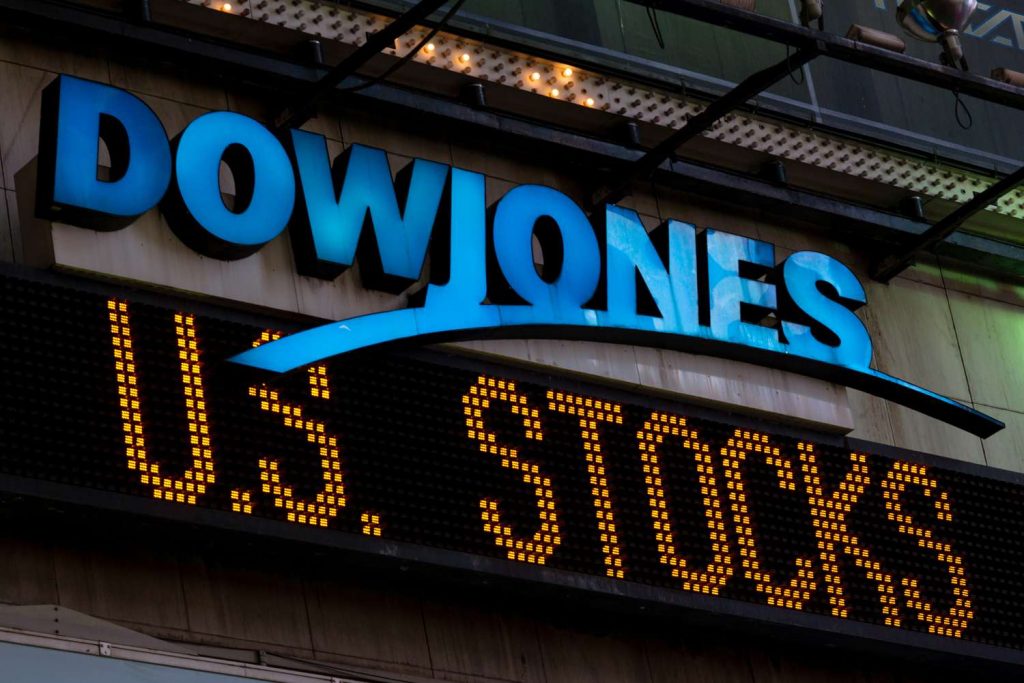Welcome to the world of stock indices, where numbers hold the key to investment success. In this article, we will take you through the top five stock indices that you absolutely need to know about. Whether you're a seasoned trader or just starting out, understanding these indices is essential for making informed investment decisions.
First up is the S&P 500, a benchmark index that tracks the performance of the 500 largest publicly traded companies in the United States. It is widely regarded as a reliable indicator of the overall health of the U.S. stock market.
Next is the DJIA, a price-weighted index that reflects the performance of 30 of the largest and most influential companies. The DJIA has been a trusted gauge of market performance since its creation in 1896.
Moving on, we have the NASDAQ Composite, which encompasses more than 3,000 companies primarily in the technology sector. It is known for its high representation of technology and growth stocks.
In addition, the FTSE 100 deserves your attention, as it tracks the top 100 companies listed on the London Stock Exchange. Lastly, we will explore the Nikkei 225, Japan's most widely followed stock index.
Join us on this journey to uncover the key insights and trends provided by these top stock indices, and make better investment decisions to secure your financial future.
What are stock indices and how do they work?
Stock indices are a collection of stocks that represent a specific segment of the stock market. They provide traders with a way to measure the performance of a particular group of stocks and track the overall health of the market. Stock indices are often used as benchmarks to evaluate the performance of investment portfolios.
Stock indices work by using a specific methodology to calculate the average price or value of the constituent stocks. There are different types of indices, including price-weighted indices, market-value-weighted indices, and equal-weighted indices. The methodology used can vary depending on the index and its purpose.
It's important to note that stock indices are not investable assets themselves. However, a representation of the market or a specific sector. Traders can use stock indices to gain insight into market trends and make decisions based on their performance.
Understanding how stock indices work is crucial for traders, as it allows them to gauge the overall direction of the market and make informed decisions about their investments. Now that we have a basic understanding of stock indices, let's dive into the top five indices you should know about.
Importance of stock indices in the financial markets
Stock indices play a crucial role in the financial markets for several reasons. Firstly, they provide traders with a benchmark against which they can evaluate the performance of their investments. By comparing the returns of their portfolios to the performance of a relevant stock index, traders can determine whether they are outperforming or underperforming the market.
Secondly, stock indices help traders identify trends and opportunities in the market. By analysing the performance of different indices, traders can gain insights into which sectors or industries are performing well and which ones are lagging behind. This information can be valuable in making decisions and allocating capital to areas of the market that are expected to grow.
Furthermore, stock indices serve as a measure of market sentiment. When a stock index is rising, it indicates that traders are generally optimistic about the economy and the prospects of the companies included in the index. Conversely, a declining index may suggest that traders are concerned about the market or specific sectors.
In summary, stock indices provide traders with a reliable gauge of market performance, help identify trends and opportunities, and serve as a measure of market sentiment. Now, let's explore the top five stock indices globally.
The top five stock indices globally
1. The S&P 500: An in-depth look
The S&P 500 is a benchmark index that tracks the performance of the 500 largest publicly traded companies in the United States. It is widely regarded as a reliable indicator of the overall health of the U.S. stock market. The S&P 500 is market-value weighted, meaning that the weight of each constituent stock is determined by its market capitalisation. This means that larger companies have a greater impact on the index's performance.
The S&P 500 includes companies from various sectors, including technology, healthcare, financials, and consumer discretionary. It is often used as a representative index for U.S. large-cap stocks and is closely followed by traders around the world. The performance of the S&P 500 is considered a barometer of the U.S. economy and is frequently referenced in financial news and analysis.
2. The Dow Jones Industrial Average: A historical perspective
The Dow Jones Industrial Average (DJIA) is one of the oldest and most widely recognised stock indices in the world. It was created in 1896 by Charles Dow and Edward Jones and initially consisted of 12 industrial companies. Today, the DJIA includes 30 of the largest and most influential companies in the U.S.
Unlike the S&P 500, the DJIA is a price-weighted index, meaning that the stocks with higher prices have a greater impact on the index's performance. This unique methodology gives more weight to high-priced stocks, regardless of their market capitalisation. The DJIA is often seen as a gauge of the overall health of the U.S. economy and is frequently used by traders to assess market trends.
3. The NASDAQ Composite: The tech-heavy index
The NASDAQ Composite is a stock index that encompasses more than 3,000 companies primarily in the technology sector. It is known for its high representation of technology and growth stocks. The NASDAQ Composite is market-value weighted, similar to the S&P 500, and includes companies from various industries such as software, hardware, biotechnology, and telecommunications.
The NASDAQ Composite is frequently used as a benchmark for technology companies and is extensively followed by traders with an interest in the industry. It has grown in popularity in recent years as a result of the fast rise of technology businesses and their growing effect on the whole stock market.
4. The FTSE 100: A closer look at the UK market
The FTSE 100 is a stock index that tracks the top 100 companies listed on the London Stock Exchange. It is market-value weighted and includes companies from various sectors such as banking, energy, pharmaceuticals, and consumer goods. The FTSE 100 is often used as a representative index for the UK stock market and is closely followed by traders interested in British equities.
The FTSE 100 is known for its international exposure, as many of the constituent companies generate a significant portion of their revenues from overseas markets. This makes the index sensitive to global economic trends and currency fluctuations. The performance of the FTSE 100 is often influenced by factors such as commodity prices, interest rates, and geopolitical events.
5. The Nikkei 225: Understanding the Japanese stock market
The Nikkei 225 is Japan's most widely followed stock index. It consists of 225 companies listed on the Tokyo Stock Exchange and is price-weighted. The index includes companies from various sectors, including automotive, electronics, banking, and telecommunications. The Nikkei 225 is often used as a barometer of the Japanese economy and is closely monitored by traders interested in Japanese equities.
The performance of the Nikkei 225 is influenced by both domestic and global factors. The Japanese economy is known for its export-oriented nature, making it sensitive to changes in global demand and currency fluctuations. Additionally, domestic factors such as government policies, interest rates, and corporate earnings also impact the index's performance.
Register for indices with TD Markets today!
The S&P 500: An in-depth look

Stock indices play a crucial role in the financial markets. This provides traders with a benchmark to evaluate their investments and identify trends and opportunities. Furthermore, it serves as a measure of market sentiment. The top five stock indices globally, namely the S&P 500, Dow Jones Industrial Average, NASDAQ Composite, FTSE 100, and Nikkei 225, offer insights into the performance of the U.S., technology, UK, and Japanese markets, respectively.
Understanding these indices and their methodologies can help traders make informed investment decisions and navigate the complexities of the stock market. By staying informed about the performance of these indices and monitoring market trends, traders can position themselves for long-term success and secure their financial future.
In conclusion, stock indices are powerful tools that provide valuable information about the market and its various sectors. By studying and understanding these indices, traders can gain a deeper insight into the world of stocks and make more informed decisions about their investments. So, start exploring these top five stock indices today and unlock the potential for investment success.
The Dow Jones Industrial Average: A Historical Perspective

The S&P 500, short for Standard & Poor's 500, is a benchmark index that tracks the performance of the 500 largest publicly traded companies in the United States. It is widely regarded as a reliable indicator of the overall health of the U.S. stock market.
The S&P 500 is a market capitalisation-weighted index, which means that the companies with the largest market values have a greater impact on the index's performance. This makes it a good representation of the broader market trends. The index covers a wide range of industries, including technology, healthcare, finance, and consumer goods, providing traders with exposure to various sectors of the economy.
One of the key advantages of investing in the S&P 500 is its diversification. By owning shares of the companies included in the index, traders can spread their risk across multiple companies and sectors. This can help mitigate the impact of any individual company's poor performance on the overall portfolio.
Investing in the S&P 500 can be done through index funds or exchange-traded funds (ETFs) that track the performance of the index. These investment vehicles offer a cost-effective way for individual traders to gain exposure to a diversified portfolio of stocks.
The NASDAQ Composite: The tech-heavy index

Next on our list is the Dow Jones Industrial Average (DJIA), a price-weighted index that reflects the performance of 30 of the largest and most influential companies in the U.S. The DJIA has been a trusted gauge of market performance since its creation in 1896.
Unlike the S&P 500, which is market capitalisation-weighted, the DJIA is calculated by adding up the prices of the 30 component stocks and dividing the sum by a divisor. This means that the performance of higher-priced stocks has a greater impact on the index.
The DJIA is often seen as a barometer of the overall health of the U.S. economy due to its inclusion of companies from various sectors such as technology, finance, and manufacturing. Its long history and widespread recognition make it a popular choice among traders.
While the DJIA provides a snapshot of the market, it is important to note that it represents only a small fraction of the thousands of publicly companies in the U.S. Therefore, traders should consider using the DJIA in conjunction with other indices to get a more comprehensive view of the market.
Read More: How Demo Accounts Can Fast-Track Your Success
The FTSE 100: A closer look at the UK market

Moving on, we have the NASDAQ Composite, which encompasses more than 3,000 companies primarily in the technology sector. It is known for its high representation of technology and growth stocks.
The NASDAQ Composite is a market capitalisation-weighted index, similar to the S&P 500. However, its focus on technology companies sets it apart. Some of the largest technology companies, such as Apple, Microsoft, and Amazon, are included in the index. Additionally, it makes it a popular choice for traders looking to gain exposure to the tech sector.
The NASDAQ Composite is often seen as a forward-looking indicator of the market due to its focus on growth stocks. These stocks tend to have higher valuations and are expected to deliver above-average earnings growth. However, it is important to note that the index can be more volatile compared to other broader market indices.
Traders interested in the NASDAQ Composite can invest in index funds or ETFs that track the performance of the index. These investment vehicles provide diversification across a broad range of technology companies. Furthermore, this reduces the risk associated with investing in individual stocks.
The Nikkei 225: Understanding the Japanese stock market

In addition, the FTSE 100 deserves your attention, as it tracks the top 100 companies listed on the London Stock Exchange. One of the most popular stock indexes in Europe is this one.
The FTSE 100, Financial Times Stock Exchange 100 Index, is market capitalisation-weight, similar to the S&P 500. It includes companies from various sectors, including finance, energy, consumer goods, and healthcare.
As the FTSE 100 represents the largest companies listed in the UK, it is often a gauge of the overall health of the UK economy. Traders interested in gaining exposure to the UK market can invest in index funds or ETFs that track the performance of the FTSE 100.
It is worth noting that the FTSE 100 has a direct connection to global economic factors, such as changes in interest rates, commodity prices, and geopolitical events. Therefore, traders should consider these factors when making investment decisions related to the FTSE 100.
Final Thoughts and key takeaways
Lastly, we will explore the Nikkei 225, Japan's most widely followed stock index. It consists of 225 companies listed on the Tokyo Stock Exchange and is considered a key indicator of the Japanese stock market.
The Nikkei 225 is a price-weighted index, similar to the DJIA. It includes companies from various sectors, such as manufacturing, finance, and technology. The index is calculated by adding up the prices of the 225 component stocks and dividing the sum by a divisor.
Traders are gaining exposure to the Japanese market and can invest in index funds. Additionally, ETFs that track the performance of the Nikkei 225. These investment vehicles provide diversification across a range of Japanese companies and sectors.
It is important to note that investing in international markets, such as Japan, carries additional risks. This includes currency fluctuations and geopolitical factors. Therefore, traders should carefully consider their risk tolerance and investment objectives before investing in the Nikkei 225.
